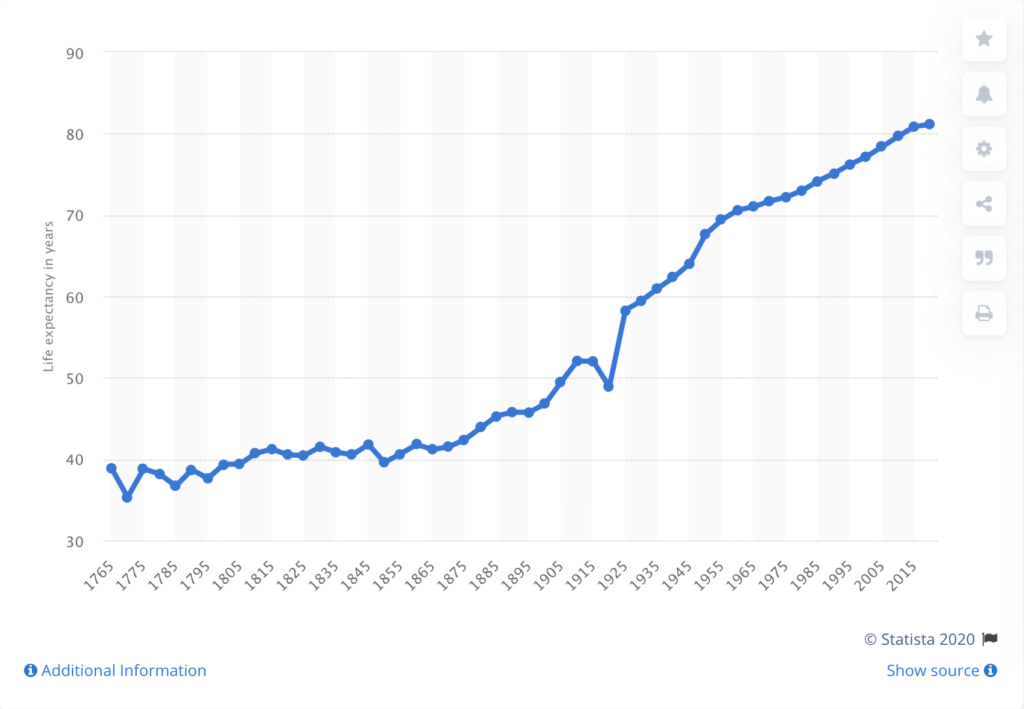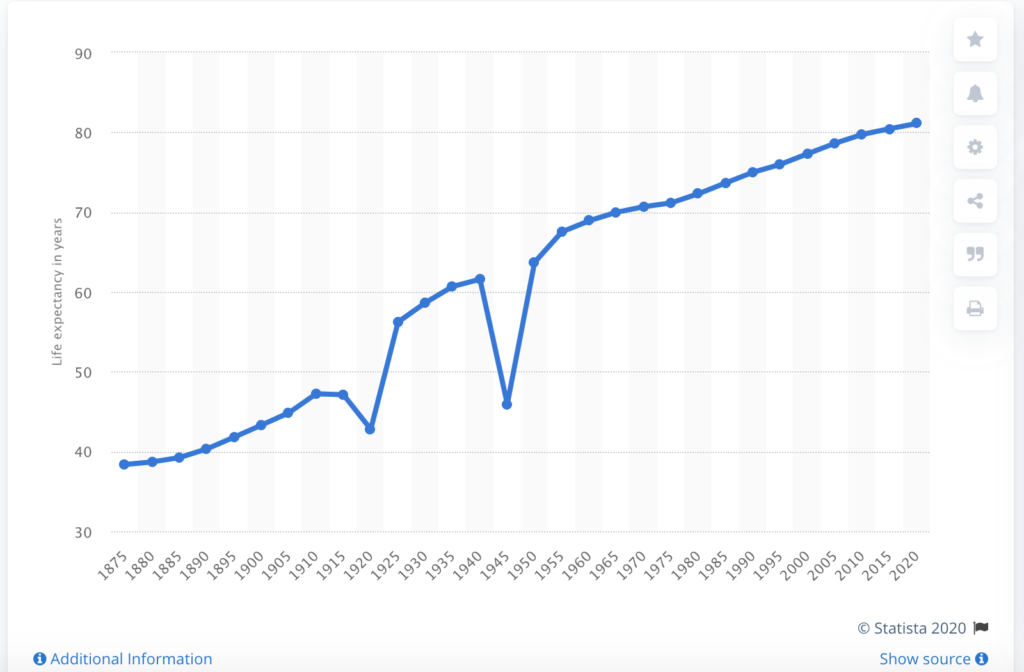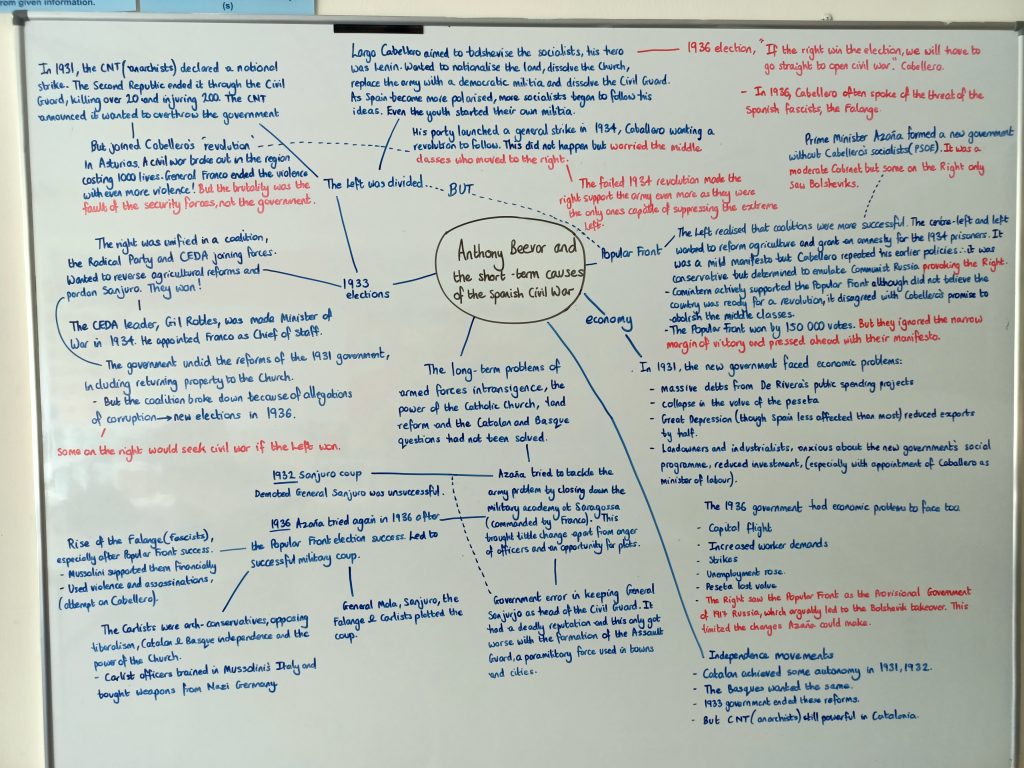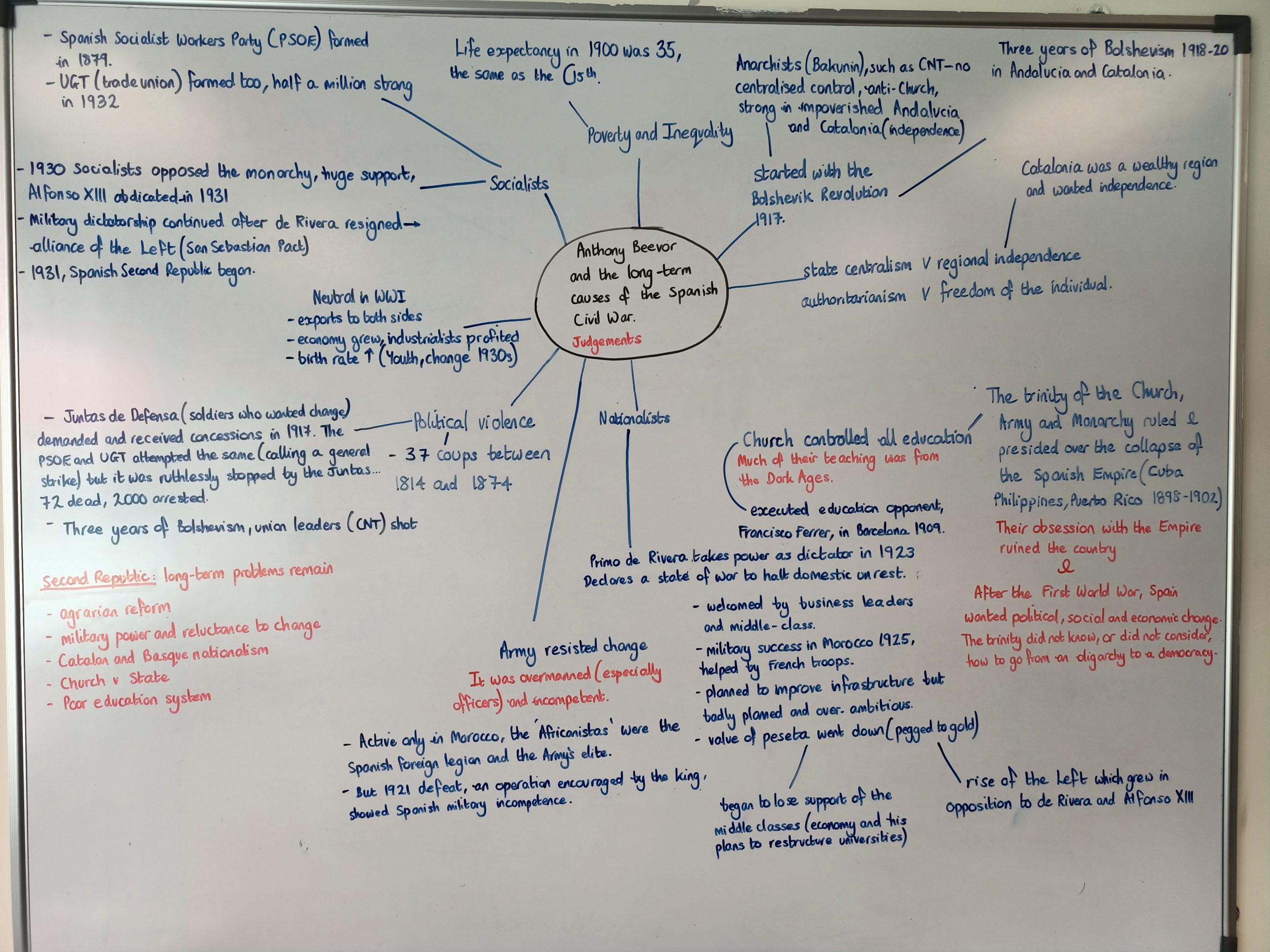Timeline
1923 – Primo de Rivera becomes prime minister following a military coup.
1930 – De Rivera resigns, General Berenguer his replacement
1931 – Second Republic proclaimed, King Alfonso abdicated
1933 – Right-wing parties form the government after elections.
1936 – Popular Front win elections and form new government. A military coup leads to civil war.
Paul Preston explains that the war began on 18 June 1936 although the army coup was the evening before.
Causes
History Extra podcast – Paul Preston
- The Spanish Civil War has its roots in the Bolshevik Revolution of 1917. Anthony Beevor, The Battle for Spain
- The country had benefitted economically because of the First World War (getting rid of the national debt for example) but there were still huge political divisions, there were ten different governments from 1917 to 1923.
- These years were extremely turbulent for Spain.
- The monarchy under King Alfonso was forced to abdicate and flee into exile in 1931. Spain was now a republic but support for it was not unanimous.
- The Republic had gained power because the elite (Church, landowners, Army) had too much power and wealth. Other countries had made progress in the twentieth century, Spain, with too many agrarian poor, had not. The King was seen as an obstacle to making progress so was forced down.
- The Army was archaic and top-heavy, it had eleven soldiers to one officer. Consequently, the new republic wanted to reform the military and this was met with some resistance.
- As the Republic was liberal and progressive, Catalonia saw the opportunity to gain independence. It had become part of Spain in the eighteenth century but now wanted to be free. It was economically strong with a successful port and growing textile industry. When the Republic granted Catalonia ‘home rule‘ or semi-autonomy, together with the military reforms, this brought the conservatives and army together in opposition to the government.
- As the Catholic Church was seen by some as wielding too much power, convents, monasteries and other buildings were attacked or destroyed.
- Life expectancy of people in 1900 was 35 years of age, the same as it was under Isabella and Ferdinand in the 15th century. For a comparison, see Britain and Germany below,



Revision

